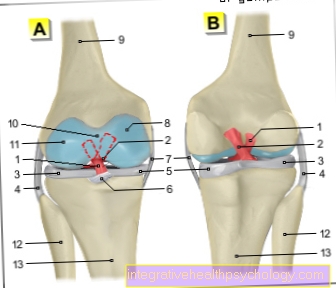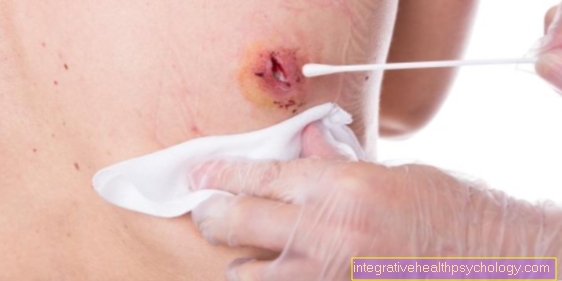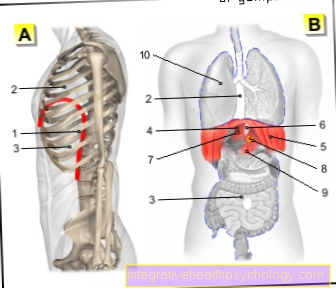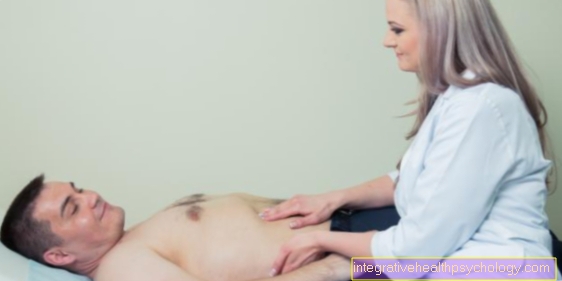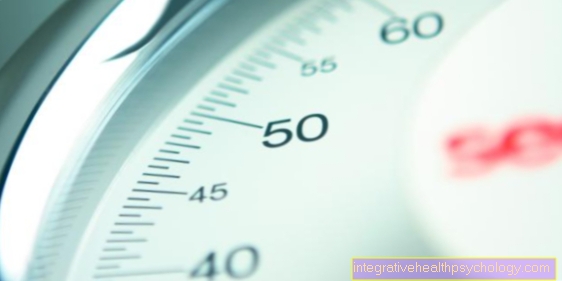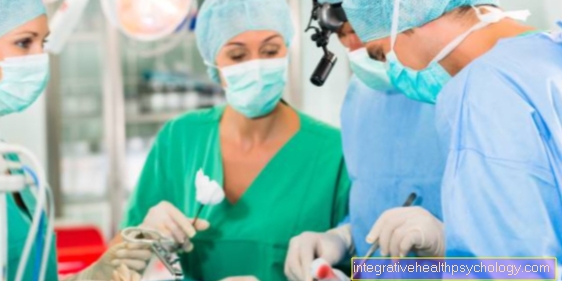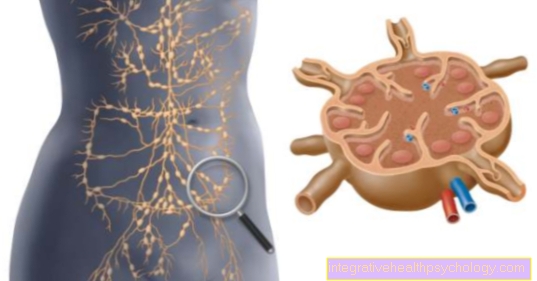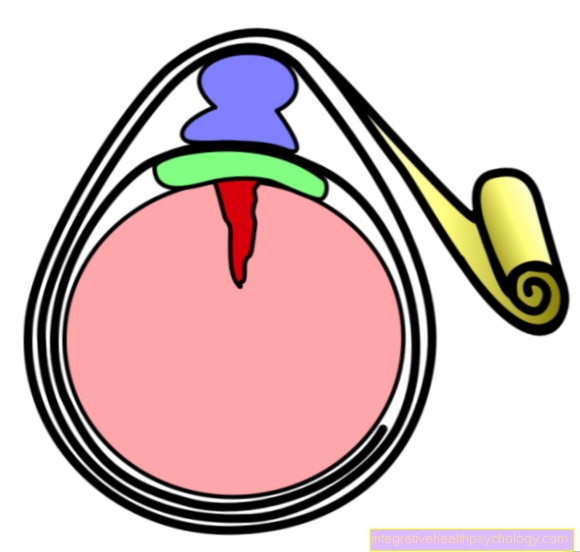How can you prevent an abscess?
introduction
Some people suffer from recurring abscesses. This can have various reasons, such as a predisposition, previous skin or immune system diseases or injuries.
Abscesses often present themselves as an acute clinical picture with a painful swelling, fever and a generally limited well-being.
Treatment of an abscess usually consists of surgically opening and emptying the abscess cavity. In this way the pus can be emptied and complications can be avoided. These complications include, for example, systemic infections and inflammatory reactions. Therefore, the question often arises how best to prevent an abscess.
The following article answers interesting questions about this topic. However, it should be noted that it is about superficial abscesses. Organ abscesses located deep down are special clinical pictures for which other preventive measures apply.
What types of abscesses are important? You can find this information and much more at: Abscess - The Different Forms
The terms "abscess" and "furuncle" are often used as synonyms. But there are some clear distinguishing features. Read our article on this: Abscess or boil
In order to prevent an abscess, it is often beneficial to know its causes. Read our detailed article on this: Causes of an abscess

Can diet prevent abscesses?
Diet plays an important role in the development of many diseases. For example, one can say in simplified terms that a sugary diet promotes the development of type 2 diabetes mellitus. Even with acne, the diet also seems to have a significant influence on the course of the disease for many people. However, it is often very difficult to establish a direct link between diet and abscess disease. It is therefore not possible to give precise recommendations for nutrition in the event of an abscess.
However, a healthy and balanced diet is generally recommended. Furthermore, a vitamin-rich diet should be ensured. Abscesses are also common in overweight people. Therefore, if you are overweight, you should aim for weight reduction. Regular exercise in combination with a healthy diet is therefore very important to prevent an abscess.
The most important information on the subject of "healthy eating" can be found here: Healthy eating
How does homeopathy prevent an abscess?
Homeopathic remedies are used by many people as an accompanying therapy for an abscess. Popular homeopathic remedies for an abscess include, among others Belladona, Calcium sulfuricum, Hepar sulfuris calcareum or Pyrogenium.
Homeopathic treatment can be used as an accompanying therapy, but it must not delay the surgical opening of an abscess, as this can lead to complications. Homeopathic remedies can also be used in the prevention of an abscess. However, their effectiveness has not been proven.
You might also be interested in: Home remedies for an abscess
What's the best way to have a shave to prevent an abscess?
Abscesses often develop on the bottom of an ingrown hair. This is often the case with anal abscesses, for example. Hairy men in particular are more likely to be affected.
However, shaving can also promote the development of abscesses. Blurred razor blades that have already been used several times can lead to hair growing in. Shaving can therefore not be viewed as a preventive measure. When shaving, you should always make sure to use clean and sharp blades. Many germs are deposited on the blades, especially after repeated use. Sharing razor blades with other people should also always be avoided. Small cuts can also be disinfected with a skin disinfectant after a shave to minimize the risk of germs entering.
Opinions on permanent hair removal through laser treatment for recurring abscesses differ greatly. Such hair removal is recommended by some as a preventive measure. However, it's not entirely clear whether this actually results in a lower rate of abscesses.
Do you notice any reactions on your skin after shaving? You might also be interested in: Boils after shaving
Can certain creams or ointments help prevent abscesses?
In the treatment of boils and small abscesses, so-called pull ointments are also used in some cases. These ointments are intended to cause the abscess to mature so that a central point of pus develops. Although this type of ointment was widely used in the past, its use is now very controversial.
A positive effect on the healing of abscesses has not been proven and therefore their use is often no longer recommended. Pull ointment is also not suitable for preventing an abscess. Any other creams or ointments cannot be used for this purpose either.
For more information on treating abscesses, visit:
- Treat abscess with an ointment
- What's the best way to treat an abscess?
Prevent an abscess by washing
Poor personal hygiene plays an important role in the development of skin abscesses. Therefore, an important part of superficial abscess prevention is good personal hygiene.
Especially people who sweat more should note that bacteria can multiply well in the sweat glands.
The intimate and genital areas are also more often affected by abscesses due to the density of sweat glands and hair. You should therefore shower daily and, if you sweat more, clean your armpits and genital area several times with water and keep them dry. For example, applying baby powder after you shower can help keep armpits and private areas dry.
If you are very overweight, you should also try to reduce your weight, as this also facilitates personal hygiene.
Skin care is an important part of a person's everyday life. You can find out what proper skin care looks like in the following article: Proper skin care
You might also be interested in these topics
Recommendations from our editorial team:
- Skin care for men - care tips for men
- Healing An Abscess - What To Look For!
- How does a pus pimple develop?
- Causes of a boil
- Ingrown hair in the armpit


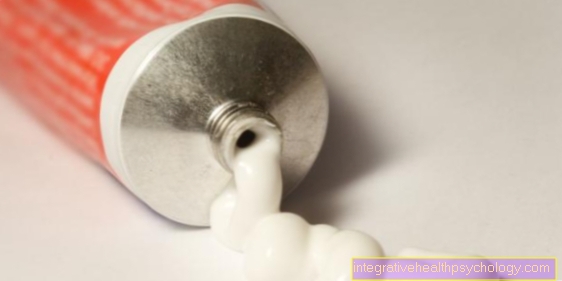


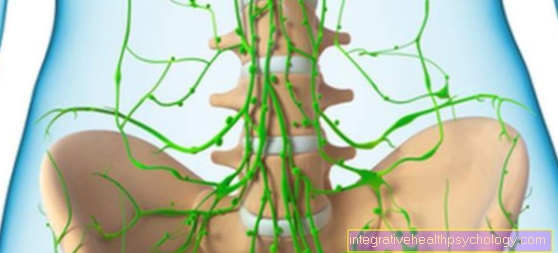



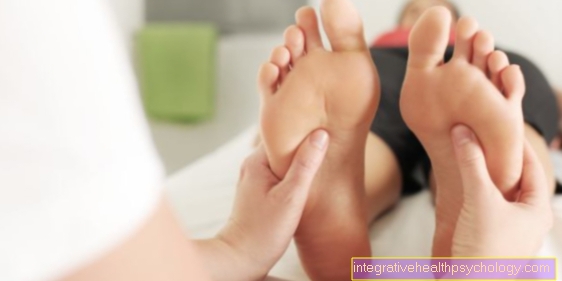

.jpg)


